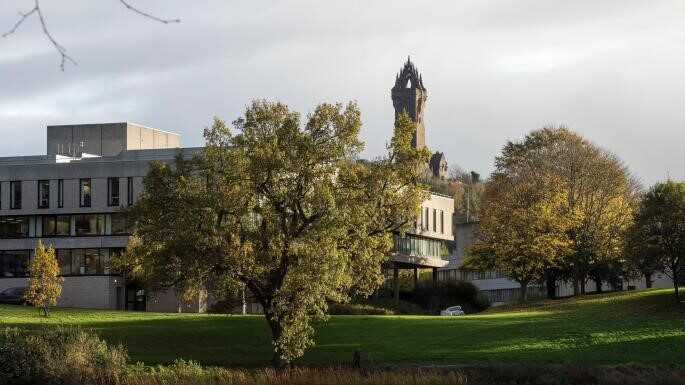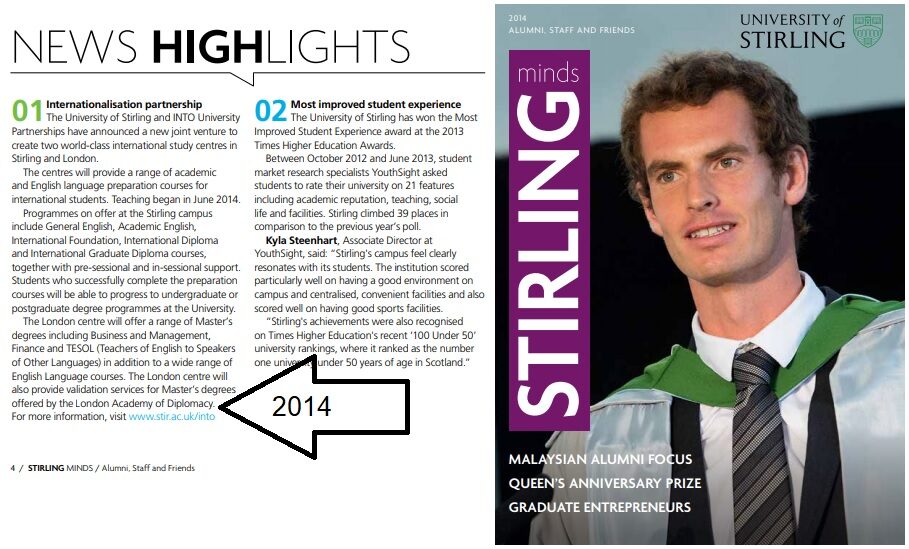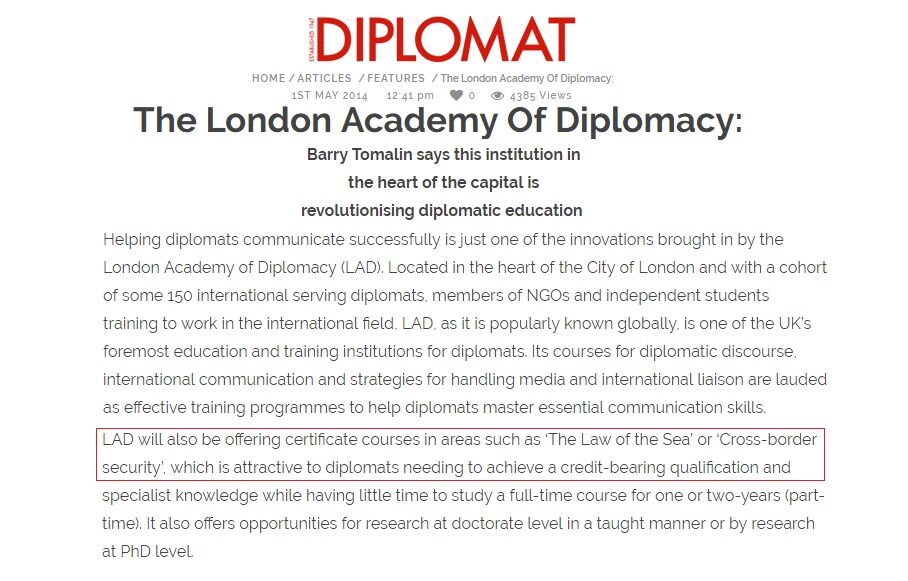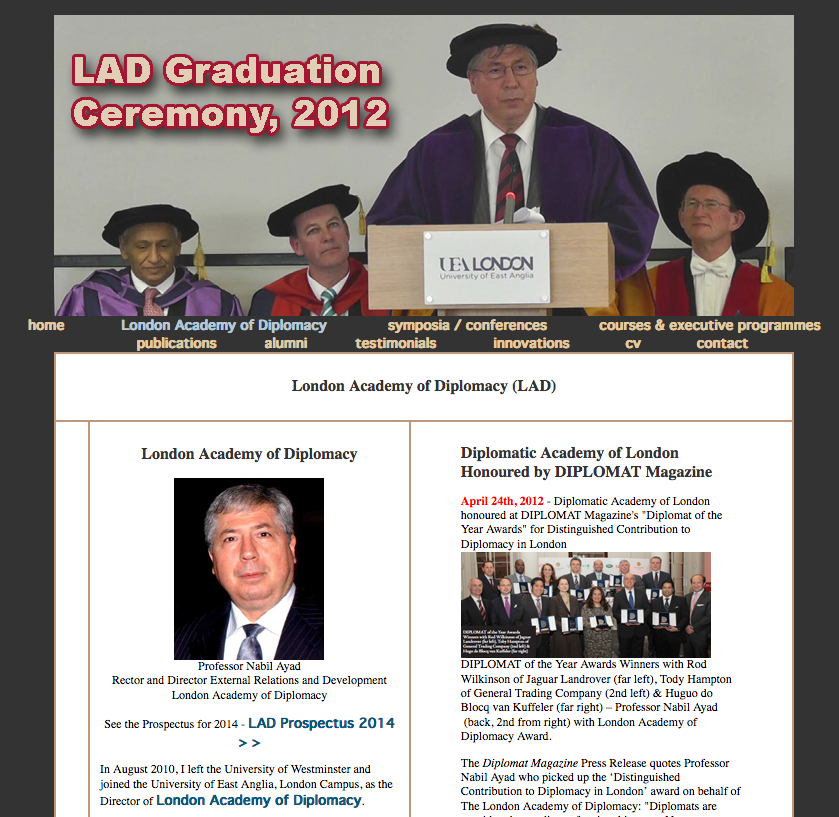- George Papadopolous
- Stirling is Ground Zero
- Background Information
- Storyline in Sequence
- Storyline in Video Clips
- Why the Silence?
- 1. George Papadopoulos
- 2. Joseph Mifsud
- 2a. Mifsud could be dead
- 2b. Mifsud & Claire Smith
- 3. Alexander Downer
- University of Stirling
- Stephan Roh
- MI6 Sting
- Brexit & David Cameron
- Brexit & Trump
- Brexit and Arron Banks
- UK Origins in Rome
- United States of Europe
- Globalism & Trump
- Imagine One World
- Origin of Fake News
- FISC/FISA U.S. Court
- Twitter and Mifsud
- Contact Ben Bradshaw
- DEEP STATE TARGET
- PROPHETS OF DOOM
- Page One
WHAT IS THE UNIVERSITY OF STIRLING HIDING?
MP asks Stirling University about Joseph Mifsud’s ‘link to Russia’

By Daniel Sanderson
November 3 2017, 12:01am, The Times
See: https://www.thetimes.co.uk/article/mp-asks-stirling-university-about-joseph-mifsuds-link-to-russia-p3rf6w00c
[REDACTED] A former UK cabinet minister has challenged a university principal to address claims that one of his staff helped Russia to interfere in the US election.
 Ben Bradshaw, Labour MP, Exeter.
Ben Bradshaw, Labour MP, Exeter.
Ben Bradshaw and a former culture secretary, expressed alarm at the alleged link between the University of Stirling and Moscow’s efforts to help Donald Trump become president.
He has written to Gerry McCormac, its vice-chancellor, asking for details on the full-time role he gave to Joseph Mifsud, who is said to have offered “dirt” on Hillary Clinton to the Trump campaign. US investigators believe he acted as a crucial link between Republican aides and the Kremlin.
Professor Mifsud is said to have met George Papadopoulos, a Trump campaign aide who has admitted misleading the FBI, in London and is presented as a shadowy figure with extensive connections to the top of the Russian state in US court documents.
In his letter to Professor McCormac, Mr Bradshaw said: “I would be most grateful if you could outline exactly what role Professor Mifsud has at your university and on what basis. I would also be grateful if you could confirm whether you have asked the professor about the statements deposited by the Mueller investigation and whether or not they are true.”
The university has said that Professor Mifsud, who is Maltese, has been employed as a full-time professorial teaching fellow since May in its politics department, but students report having never encountered him. Concerns have also been raised over “red carpet” treatment he is said to have received at Stirling before taking on a full time role, with his relationship with the institution stretching back to at least 2014.
Robert Mueller, a former FBI director, is overseeing an investigation into the claims of Russian interference in the US election and whether the Trump campaign was complicit. In US court documents a professor, who is not named but who Professor Mifsud has admitted is him, is said to have offered “dirt” on Ms Clinton and claimed the Russians had “thousands of emails”.
Before the election, embarrassing hacked emails emerged from the inbox of John Podesta, who served as Ms Clinton’s campaign chairman.
Mr Bradshaw raised the alleged British link with the scandal in the Commons twice this week, and has asked whether the UK government intends to make a statement. He copied his letter to John Swinney, the SNP education secretary and deputy first minister.
The Scottish government distanced itself from the controversy, saying universities are “autonomous institutions” with sole responsibility for staffing.
Professor Mifsud, who is believed to be in Italy, has denied any wrongdoing, although he has admitted meeting Mr Papadopoulos. He told an Italian newspaper that there had been “a misunderstanding” about his role. He added: “I have not got any secrets. I am a Democrat and a Hillary Clinton supporter. I am supposed to have offered mud that I collected from the Russians they had on Hillary? That’s a joke.
“Do you also know which foundation I am a member of? The Clinton Foundation, have a think about that. To be honest my political thinking is towards the left but as for dirt offered to Papadopoulos I know nothing.”
Clearly something really weird has been going on at the University of Stirling!
Pages referring to the London Academy of Diplomacy have been removed: by the University.

See: https://www.stir.ac.uk/media/stirling/global-assets/documents/main-publications/stirling-minds/Stirling-Minds-2014.pdf
http://www.diplomatmagazine.com/the-london-academy-of-diplomacy/
----------------------------------------------------------------------------------------------------------------------------------------------------------------------------------------------------

These London Academy of Diplomacy are relevant to this issues relating to the UK coastline and especially to the issue relating to the borders between the six counties of Northern Ireland and the rest of the island of Ireland.

See: https://jonworth.eu/joseph-mifsud-professor-papadopoulos-manafort-revelations/#lad2
----------------------------------------------------------------------------------------------------------------------------------------------------------------------------------------------------
 BEN BRADSHAW, MP
BEN BRADSHAW, MP
RAISES QUESTIONS IN THE HOUSE OF COMMONS
Hansard Extracts:
27 March 2018, Volume 638, Emergency debate (Standing Order No. 24)
Mr Speaker
We now come to the emergency debate on the EU referendum and alleged breaches of electoral law. This debate, as colleagues will know as I informed the House yesterday, can run for up to two hours.
2.48 pm
Mr Bradshaw
I agree. Any legislator in this House who takes his or her job seriously needs to read the testimony of Christopher Wylie before the Digital, Culture, Media and Sport Committee today.
Finally—this is slightly away from the evidence given by Mr Wylie today—I have received other new information that also concerns me. Members will recall the dreadful murder of Daphne Galizia in Malta last year. At the time she was murdered, I am informed that Ms Galizia was investigating Pilatus Bank, which had its assets frozen last week owing to fears of money laundering. She was also investigating Cambridge Analytica and Henley & Partners, which sells citizenship in Malta, and there are other links with the Legatum Institute, concerns about which I raised in the House several months ago, and the mysterious Maltese professor, Professor Joseph Mifsud, who is named in an indictment by Robert Mueller’s inquiry. All those matters need to be examined incredibly carefully, and I want the Minister to give a full and categorical assurance that, given the significant British links, the Maltese authorities that are investigating such matters will receive the full support and co-operation they need from our law enforcement, intelligence and security agencies.
----------------------------------------------------------------------------------------------------------------------------------------------------------------------------------------------------
26 March 2018 Volume 638
[Relevant documents: Oral evidence taken before the Foreign Affairs Committee on 21 March 2018, Oral evidence from the Foreign Secretary, HC 538. The First Report of the Defence Committee of Session 2016-17, Russia: Implications for UK defence and security, HC107, and the Government Response, HC668, and oral evidence taken before the Defence Committee on 21 February, on Departmental priorities, HC814. The First Report of the Joint Committee on the National Security Strategy, National Security Capability Review: A changing security environment, HC 756.]
8.03 pm
Mr Ben Bradshaw (Exeter) (Lab)
May I start my remarks by repeating the welcome I gave to the Prime Minister earlier for the efforts the Government have undertaken to secure this impressive level of solidarity and support from our European friends and others? I welcome any personal role the Foreign Secretary played in that. This shows that they certainly have no doubt of Kremlin culpability, and I am sure they would have been given access to information that most Members have not had access to, which has helped them arrive at that conclusion, along with the clear evidence from Porton Down and elsewhere.
I warmly welcome the clear statement by my right hon. Friend the Leader of the Opposition that he accepts Russian culpability. I deprecate the barracking he received from some on the Government Members, most of whom are no longer here, having just popped in to barrack him. They have never been here for debates on Russia before and they did not even listen to what he had to say. That was deplorable behaviour, and I want to put that on the record.
I have been raising my concerns about Russia for many, many years. Indeed, when I first started raising concerns about 18 months ago about Russian interference in our democracy, I was treated as a bit of an eccentric, a crank and a conspiracy theorist. I started raising those concerns because of the evidence of what had happened in the United States presidential election. Having expressed those concerns, I found myself to be the recipient of a great deal of very interesting information, some of which has since come out. I have to tell hon. Members that a great deal more that is very serious is still to come out. I shall confine my remarks to my concerns about Russia’s propaganda and interference in democracy part of its hybrid war against the west. This is not just about the direct interference in elections or electoral systems; I want the Government to take seriously the attention paid by the Kremlin to political parties, think tanks and our educational establishment.
First, on elections, we know from the US about the extent of Kremlin interference in its presidential election and there is growing evidence here. I have to commend the Chair of the Select Committee on Digital, Culture, Media and Sport for the work he and his Committee are doing to look into what happened here in terms of social media. I hope that when the Intelligence and Security Committee commences its work, it will look into that in even greater detail. I first raised this issue in a question to the Prime Minister in December 2016, and I wonder whether the Foreign Secretary could tell the House what action the Government took in response to my raising those concerns. Did they just leave the matter to the ongoing investigations of the Electoral Commission, or did they make their own inquiries and take up their own responsibilities for ensuring that our electoral systems are safe and secure?
Mr Dominic Grieve
I just want to give the right hon. Gentleman the assurance that it was the Committee’s intention to look at the full spectrum of Russian activity.
Mr Bradshaw
That is extremely good news, and I very much welcome the fact that the right hon. and learned Gentleman’s Committee is doing that.
I would also like the Foreign Secretary to comment, if he can, on what the Government and their agencies are doing to take down Kremlin operations that seek to influence and infiltrate our political parties. He has a particular responsibility in this area, for example, to have satisfied himself that all those who have donated to his political party and to individual Conservative MPs, including some wealthy Russians here who give the impression of being Putin opponents, are in fact as stated. I hope that the Foreign Secretary and the agencies that serve under him are working very hard to make sure that he can feel confident on that.
I invite the Foreign Secretary to task the agencies to investigate the United Kingdom Independence party—this is much more serious. We already know that there are close political ties here involving Farage, who has been named as a person of interest in the Mueller investigation; that Aaron Banks is also under investigation by the Electoral Commission; and that of course Jim Mellon, the co-founder of Leave.EU, has extensive business background and current investment interests in Russia. So I would be grateful if the Foreign Secretary confirmed that as part of their investigations to counter criminal activities in this country, the Government are looking at some of the allegations that have been made around UKIP. Again, I first raised these concerns months and months ago.
Also, about 10 months ago, I highlighted concerns I had picked up about collusion between the leave campaign and these others bits of the leave campaign, such as BeLeave, to get around our strict electoral spending laws. At the same time, I also raised concerns about the role of Cambridge Analytica, and we have now seen the most extraordinary and shocking revelations this week from The Guardian, The New York Times, the Canadian Broadcasting Corporation, “Channel 4 News” and others. I hope that the Foreign Secretary will tell us whether the Government took the concerns I raised back then seriously and what they did about them.
Of course the other concerns that many of us have expressed was about the huge donation to the Democratic Unionist party for the leave campaign, whose source we are not allowed to know because, shockingly, the Government did not make the transparency of political donations in Northern Ireland retrospective. I hope that they will think again on that. The Electoral Commission has asked them to make that decision retrospective. It is always open to them to bring another motion to this House, so that we can do that and so that we can know and have confidence in the source of that huge donation. Again, a lot of that was spent on this digital advertising and digital work.
The United States has a powerful judicial investigation into Russian interference, under special counsel Mueller. Compare that with the farce this week of the Information Commissioner trying to get a warrant to search Cambridge Analytica’s office, which she finally managed to do late on Friday evening, having been trying all week. That clearly shows that our Electoral Commission, independent Information Commissioner and Select Committees do not have the powers they need to tackle this problem adequately. I hope that special counsel Mueller’s investigation will come up with more evidence and that the Foreign Secretary can reassure the House that all the various investigations into Russian interference in Britain are getting the full co-operation and support of all the Government’s agencies, because I have been told in the months past that that was not the case. I have since been reassured by Ministers that it is happening now, and would be grateful if the Foreign Secretary assured the House that he, the intelligences services and our other agencies are helping the Electoral Commission, the Information Commissioner and the Select Committees and providing them with anything that they ask for.
I could say a lot more on this subject, and I wanted to say more about the role of educational institutions, so I hope that the Foreign Secretary takes that on board. I have had a frustrating time trying to get some sense out of our universities—for example, those that employed Professor Mifsud, who has disappeared since being exposed in a Mueller indictment.
Let me say one more thing. On the issue of money, Bill Browder gave 12 other countries the dossiers that he has given to the British authorities. Those 12 other countries have prosecuted the people responsible; will the Secretary of State find out why that has not happened here and have a word with his fellow Ministers, to make sure that they act on the evidence with which they are provided.
----------------------------------------------------------------------------------------------------------------------------------------------------------------------------------------------------
16 November 2017 Volume 631
5.00 pm
Mr Bradshaw
I do beg my hon. Friend’s pardon.
I hope that one of the Committee’s early inquiries will be into Russian interference in the UK. As you know, Madam Deputy Speaker, I have been raising questions about this for the past year, during which the evidence of Russian interference in the American presidential election became credible and compelling. Until recently, the UK Government gave every impression of not wanting to talk about it, but mounting evidence on both sides of the Atlantic of covert Russian propaganda and social media activity, and the role of dark money in our democracy, makes it imperative that the Intelligence and Security Committee looks at this as a matter of urgency. The Digital, Culture, Media and Sport Committee has already launched an inquiry and the Electoral Commission is conducting investigations into Russian-backed interference in the referendum, including with regard to social media and the funding of the pro-Brexit campaign and its main financial backer, Arron Banks.
The American investigation into alleged collusion between the Kremlin and the Trump campaign, led by Justice Department special counsel Robert Mueller, has also now reached Britain. The FBI has named Nigel Farage, the former UKIP leader, as a person of interest, and Mueller has indicted a former Trump campaign operative, George Papadopoulos, who had meetings in London with a UK-based academic, Josef Mifsud, to discuss the latter obtaining dirt on Hilary Clinton from the Kremlin. We know that Mr Papadopoulos has had access to British Ministers, and that Professor Mifsud has met the Foreign Secretary, although that was at first denied.
While it is imperative that the Government and its agencies give the fullest help and co-operation to the Culture Committee, the Electoral Commission and the Mueller investigations—although I know this is not his area of responsibility, I would be grateful if the Minister could assure the House that that will be the case, especially as I have been told that the Mueller team was in London recently and was not happy with the co-operation it was receiving from the UK authorities—it is the Intelligence and Security Committee that has much freer and direct access to our intelligence and security services and can question them directly. That is why its reconstitution is so important.
Despite the mounting evidence of recent months, the Foreign Secretary was still insisting last week that he had seen no evidence of Russian interference, but on Monday the Prime Minister said, or at least implied, something very different in her Mansion House speech. She excoriated the Putin regime for hacking, interfering in elections, and spreading fake news to sow discord in western democracies and threaten our international order.
It would be helpful to the Houses of Parliament and the country as a whole if the Government would end this confusion now. Is Britain among the countries that the Prime Minister had in mind when she made her speech? Indeed, it would be rather odd, given the uniquely disruptive impact of the Brexit vote and Putin’s well publicised desire for it, if Britain alone were immune from the Kremlin’s intentions. If the Government will not clear this up, I hope the ISC will. I hope that the ISC will also use its good offices to ensure that the Government and all their agencies give every assistance necessary to the other UK bodies investigating these matters and to Robert Mueller’s team.
Additionally, I urge the ISC to include the issue of dark money and the role of think-tanks in any of its deliberations on this matter. We know that more than £400,000 was donated during the EU referendum to the Democratic Unionist party by the Constitutional Research Council. The CRC has also given money to hard Brexit-supporting MPs, including the Under-Secretary of State for Exiting the European Union, the hon. Member for Wycombe (Mr Baker). It was reported last week that the fine the Electoral Commission imposed as a result of the DUP donation resulted from a failure to disclose its source. That is not acceptable.
Liam Byrne (Birmingham, Hodge Hill) (Lab)
My right hon. Friend is making a brilliant and forensic speech, and he is to be commended by us all for pursuing this matter over the past year. Does he agree that a priority for the ISC should be to get to the bottom of whether foreign money was donated to the election campaigns and to the referendum campaign? A gap in the law means that the Electoral Commission is not empowered to investigate foreign actors and foreign money, and their influence on our democracy and this House.
Mr Bradshaw
I completely agree with my right hon. Friend. Our legal framework is completely outdated for meeting the challenges that we face.
There is a further issue that I hope the Government will address. They have promised to close the loophole in Northern Ireland, where political donations remain secret for historical reasons, but that is completely unacceptable. It is quite clear that Northern Ireland has recently been used as a channel for such donations. The Government, to their credit, have said that they will change the law. Every single party in Northern Ireland— except the DUP, I think—believes that such a change should be retrospective. That would allow us to go back to the time of the referendum so that we would know where the money came from, and we could have full confidence in the integrity of our political and democratic process.
I also urge the ISC to look at the Legatum Institute, its relationship with the Government, and the background of its founder and main funder, Christopher Chandler. It should also consider the activities and funding of political organisations such as Conservative Friends of Russia, now renamed as the Westminster Russia Forum.
I come now to my final and perhaps most important point: the relationship between our intelligence and security services and those of our closest ally, America; and the relationship of each with their respective Government. President Trump is at war with his intelligence community. He has made it abundantly clear that he would sooner believe Putin than his own intelligence and security professionals. That is shocking, but it would be even more worrying for us if that breakdown in relations were mirrored here and had a negative impact on the vital work of our agencies and the extent of their co-operation with their US counterparts.
When the news website BuzzFeed ran a series of articles recently about unexplained Russia-related deaths in Britain, its head of investigations, Heidi Blake, was inundated with American intelligence sources complaining that they did not think their British counterparts were taking these incidents seriously. If that is true, it is extremely worrying.
Until recently, British Ministers have gone out of their way to avoid talking about Russian interference. They might have been worried about doing anything that might cast doubt on the legitimacy of the EU referendum result or embarrass President Trump, from whom they hope to get a trade deal to save them from the Brexit disaster.
I hope the ISC, now that it will finally be reconstituted, will be able to reassure itself and this Parliament that our intelligence and security services continue to act freely within the law, unhampered by any narrow political concerns of Ministers, and that their vital co-operation with their US counterparts has not been affected by the breakdown between the latter and their President. This issue goes to the heart of the security and integrity of our democracy and political system, and I wish the members of the Committee well in their important work ahead.
5.09 pm
Liam Byrne (Birmingham, Hodge Hill) (Lab)
I want briefly to add to the Intelligence and Security Committee’s to-do list, because it is important that there should be a rapid study—with conclusions brought to the House, when appropriate—of what is a rapidly emerging 21st century propaganda operation for which a playbook emerged during the elections in Europe and in America, and in our recent referendum campaign. That involves some reasonably sophisticated techniques in fabricating division and discord on social media platforms such as Twitter, which are then imported into social media networks such as Facebook, with significant—often dark—money behind them, to spread messages that are quite simply not true.
The impact of that is often to undermine democracy, and we in the mother of Parliaments have a particular duty to ensure that the new techniques are fully exposed and that commensurate action is taken against them. We have talked about the gaps in our laws, and we must make sure that the disinfectant of sunlight shines right the way through the elections we have had so that those laws can be fixed.
Dr Julian Lewis (New Forest East) (Con)
I speak not only as a former member of the ISC, but as someone who was involved in the 1980s in trying to counter what were called active measures—the use by the Soviet Union of agents of influence and organisations to try to have an impact on British public opinion. The difference between then and now is that it was then quite easy to expose who was behind the influence operations, but now that is much harder because the internet allows concealment.
Does the right hon. Gentleman agree that one of the main antidotes to the concerns expressed in this debate is that the intelligence agencies, and particularly the new technological arm of GCHQ that deals with the internet, should work to expose who is behind the messages that are coming through? We cannot stop messages getting through, but we can neutralise them by showing up their provenance.
Liam Byrne
The right hon. Gentleman is exactly right. There are well-sourced reports that there have been at least two briefings about Russian interference to the Prime Minister, if not the Cabinet. It is not clear what action was taken in response, but it is now quite clear that dark forces have new techniques. We recognise their fingerprints in some of the referendums and elections that have played out in our country and elsewhere, but let us be under no illusion that their job is not done. They will continue to try to influence debates in this House because they want to change the political environment in which we debate the terms of Brexit, for example. The faster the ISC can do its work and expose, in an appropriate way, what is truly going on, the better for all of us.
5.12 pm
Michael Ellis
With the leave of the House, I will respond to the debate.
Needless to say, the topics chosen for discussion by any Committee are not a matter for me or any of Her Majesty’s Ministers. However, the first point to make is that the Government recognise the need to protect the reliability and objectivity of information, which is an essential component of democracy. That is why Her Majesty’s Government are working with the industry to ensure that high-quality online news media have a sustainable future, and that so-called fake news is not commercially incentivised. It is important to make the point that significant work is being done on that.
On the points about alleged electoral abuse, there has much talk for some time about Russian interference in democratic processes both in the United Kingdom and overseas. In response, the United Kingdom has been proactive. It has actively engaged international partners and civil society to tackle the Kremlin’s use of disinformation and propaganda. However, it is the United Kingdom’s very robust, free, wide-ranging, vibrant and varied media landscape that is our key defence against disinformation. To date, as has been said, we have not seen evidence of successful interference in democratic processes in the United Kingdom. Naturally, we would take robust action should there be evidence of such interference.
If there are any other points on which Members think I can be of further assistance, they should feel free to write to me, and I will certainly see to it that inquiries are made of the relevant Departments. Interesting points have been made in these contributions, and I very much look forward to seeing the fruits of the deliberations of this important Committee.
Question put and agreed to.
----------------------------------------------------------------------------------------------------------------------------------------------------------------------------------------------------
13 November 2017 Volume 631
3.33 pm
Boris Johnson
I think the paramount concern of everybody in this House is not narrow party political concerns, is it? It is not. It is the safe, s.ecure return of Nazanin Zaghari-Ratcliffe and that is what we are working for.
Mr Ben Bradshaw (Exeter) (Lab)
While the right hon. Gentleman is in the business of correcting the record, will he correct his statement from last week that he had never met Joseph Mifsud, the UK-based so-called academic at the centre of the Trump-Putin collusion allegations, given the publication in the newspapers yesterday of a photograph of just such a meeting?
Mr Speaker
Order. There is all sorts of flailing and waving about. It is not statesmanlike and the source from which it emanates is a source from which I usually expect the most statesmanlike conduct. The right hon. Gentleman’s question suffers from the disadvantage that it is not even adjacent to—does not even hover over, does not buzz around—the urgent question that has been posed, so he will have to pursue other opportunities to favour the House with his thoughts, or to seek to extricate from the mind of the Foreign Secretary his own. On that point, we will leave it there for now.
----------------------------------------------------------------------------------------------------------------------------------------------------------------------------------------------------
31 October 2017 Volume 630
1.11 pm
Mr Ben Bradshaw (Exeter) (Lab)
On a point of order, Mr Speaker. Have you had any indication from the Government on whether they intend coming to this House to make a statement about the British connection in the Robert Mueller investigation into Russian subversion of the American presidential election, and in particular, the apparent role of an academic, a Professor Mifsud, who met in London more than once, we understand, George Papadopolous, who has already pleaded guilty to misleading the FBI in connection with Russian help in the presidential election?
Mr Speaker
I am grateful to the right hon. Gentleman for his point of order and for his notice a few moments ago of his intention to raise it. The short answer is that I have received no indication from any Government Minister of an intention to come to the House to make a statement on that matter. However, not being unconscious of the indefatigability of the right hon. Gentleman, I am confident that if the matter is not -brought to the House, he will try to ensure, by one means or t’other, that it is.
More information is being added on a regular basis - please check back often to see updates.
